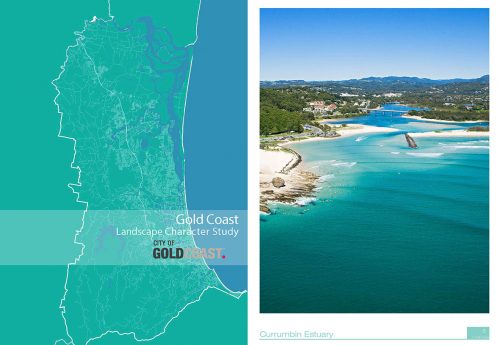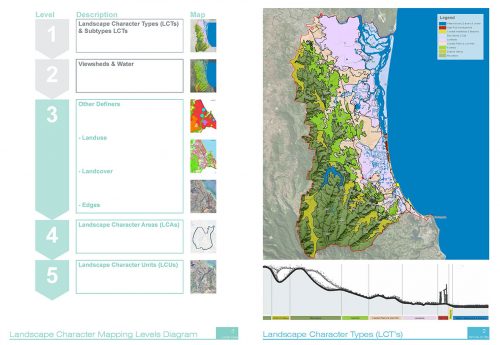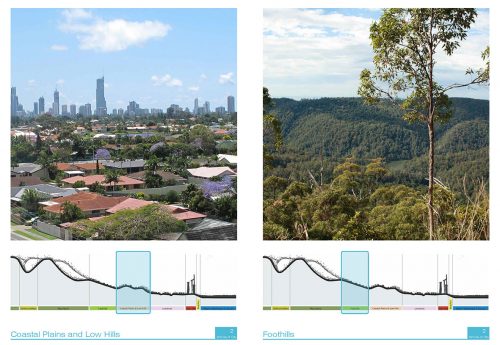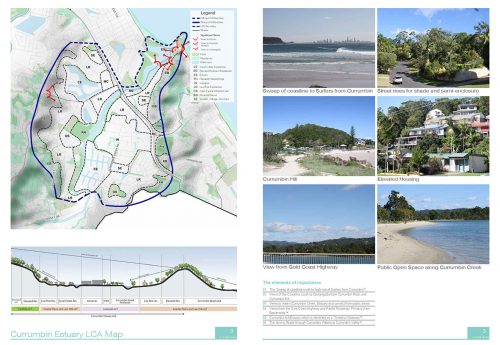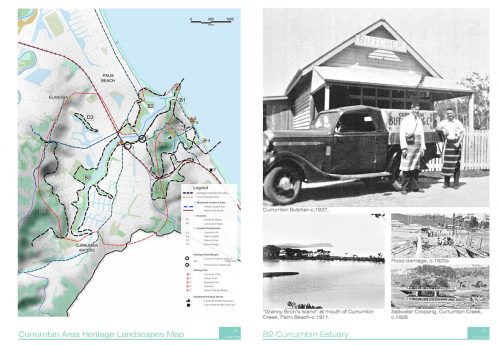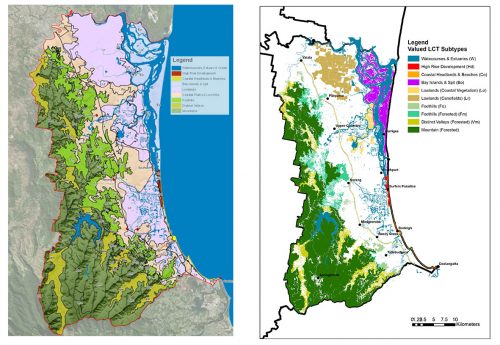Gold Coast Landscape Character Study
Ata Tara, Director of TRACE, as part of a consultancy project team, received three awards for Gold Coast Landscape Character Study. Ata was responsible for field surveys, data collection, landscape assessments and GIS mappings. This study has received three awards since it’s completion including:
- Deputy Premiers Urban Design Awards (Commendation) (2017);
- AILA (QLD) Award of Excellence for Planning in Landscape Architecture (2015);
- PIA (QLD) Award for Planning Excellence Best Planning Ideas Large, Regional or Urban (Commendation) (2014);
This study assessed landscape character across the City of Gold Coast, in a new approach which incorporates landscape heritage and also integrates urban and non-urban character, in order to identify important elements for protection and enhancement through Council’s new City Plan. The UK approach to landscape character assessment provided an overall framework, in that broad character types are subdivided into smaller character areas, but in one of the innovations of this project that basis was adapted to a more flexible method. This study provides an innovative methodology for landscape character and heritage assessment at various scales, recognising the distinctive attributes of the Gold Coast, but is also robust and suitable for more widespread applications.
At City-wide scale, the landscape is described and mapped as generic Landscape Character Types (LCTs), including one for the city’s distinctive high-rise spine, and Geographic–Historical Framework Landscapes (FLs). For local districts and neighbourhoods, place-specific Landscape Character Areas (LCAs) are identified for four selected trial areas to map LCA boundaries, finer grained Landscape Character Units (LCUs, based largely on land uses) and key elements; and to assess Heritage Landscapes (HLs). The historical landscapes identification and mapping process was developed in this study and also is innovative in Australia. While the landscape Character and Historical landscape assessment and mapping process is stepped in scale from broad City-wide scale to local places, it allows adaptability to place and details place specifics, to identify distinctive attributes, whether derived from the landscape setting, its heritage ‘story’ or combinations of finer grained land uses and community attachments. These key elements form the basis for City Plan recommendations and an Action Plan for implementation.
Further to above, TRACE was engaged by Cardno in 2017 for another relevant project to update the LCA mapping based on the updated land cover mapping.

